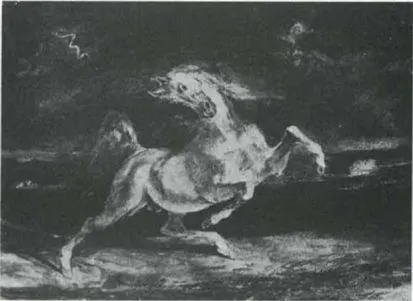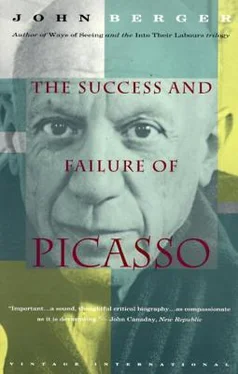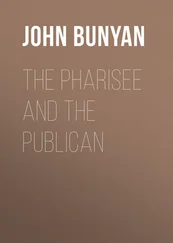Yet, later and sometimes even at the same time, his attitude was an encouragement to those who were disillusioned with bourgeois society. It is in this role that he can be claimed as the father of Romanticism, for, however diverse the Romantics from the early Wordsworth to Heine, all of them looked to nature to support them in their criticism of bourgeois society: all of them shared a passion for the wild as opposed to the tamed.
When I read the following passage, written by Rousseau in 1754, I think of a picture painted three generations later.
An unbroken horse erects his mane, paws the ground, and starts back impetuously at the sight of the bridle; while one which is properly trained suffers patiently even whip and spur: so savage man will not bend his neck to the yoke to which civilized man submits without a murmur, but prefers the most turbulent state of liberty to the most peaceful slavery. We cannot, therefore, from the servility of nations already enslaved, judge of the natural disposition of mankind for or against slavery; we should go by the prodigious efforts of every free people to save itself from oppression. I know that the former are for ever holding forth in praise of the tranquillity they enjoy in their chains, and that they call a state of wretched servitude a state of peace: miserrimam servitutem pacem appellant. But when I observe the latter sacrificing pleasure, peace, wealth, power, and life itself to the preservation of that one treasure, which is so disdained by those who have lost it; when I see free-born animals dash their brains out against the bars of their cage, from an innate impatience of captivity; when I behold numbers of naked savages, that despise European pleasures, braving hunger, fire, the sword, and death, to preserve nothing but their independence, I feel that it is not for slaves to argue about liberty.

71 Delacroix. Horse Frightened by a Storm. 1824
For nearly a hundred years all revolts and protests in Europe — whether political or cultural, left-wing or right-wing — were ideologically dependent upon an idealization of the past, or at least upon an idealization of the simple and natural as against the complex and artificial. This was the mode of the bourgeois revolutionary’s thought. The noble savage was the genius of his revolt.
In the middle of the nineteenth century the revolutionary initiative passed to the working class, and the mode of revolutionary thought changed. Instead of simplifying man to his original ‘essence’, the emphasis was now on releasing what man could become from what he was at present forced to be.
As early as the 1820s Saint-Simon had realized that the only hope for a juster society was through more industrialization, not less. It was as though a point of no return had been reached — it was impossible to turn back, one could only go on. Justification could no longer be sought in the past, but only in the future.
As industrialization increased, experience and habits reinforced this view. The workers began to become aware of their growing political power. At the same time, increasingly cut off from the countryside and tradition, they began to lose any natural sense of the past. A sense of class took the place of a sense of tradition. The beginning was the bottom of the scale at which they were forced to live. Slavery — or the equivalent of it which they suffered — was primeval.
The nature of industrial work had a similar influence. For peasants, work is a continuous response to a natural cycle — so that work can be equated with a man’s whole life. For an industrial proletariat their work, their labour is what they sell in order, having worked, to buy the means to live. For the proletariat, work, therefore, is equated with paying a ransom to the future. The increased division of labour in industry encouraged the same way of thinking. Each job only made sense at a later stage. The pawnshop was more than a bitter fact of everyday life: it too was a token of a way of living and hoping. From the pawnshop, one of the most greedy and grubby refinements of capitalism, it was only one step to the conviction of socialism. Tomorrow we shall redeem what belongs to us.
Communism [wrote Marx in 1844] is the positive abolition of private property, of human self-alienation, and thus, the real appropriation of human nature, through and for man. It is therefore the return of man himself as a social, that is, really human being, a complete and conscious return which assimilates all the wealth of previous development.
In this quotation you can see how the ‘noble savage’ has ‘returned’ as part of a larger idea — and how, in the process, he has been transformed. The transformation is the result of a new, more scientifically based understanding of progress; an understanding which was impossible until men were faced with the terrible contradictions of the wealth and poverty of nineteenth-century industry.
The publication of The Communist Manifesto in 1848 was the first full exposition of the new revolutionary attitude. Paris of the Commune of 1871 was the first battlefield. The Russian Revolution of 1917 was the first victory.
Yet the new attitude was by no means exclusively marxist. The Fabians, for example, were, in their thinking, just as far removed, and for the same reasons, from the early-nineteenth-century revolutionaries. Only the anarchists were still close to the earlier attitude, but anarchism, as we have seen, became a political force in countries which were still at an historically earlier stage.
Today, even bourgeois revolutions in former colonial countries are planned and justified in terms of the new attitude. No society or empire is any longer criticized by reference to nature, but by reference to other societies at a higher stage of economic development. Perhaps the cosmonaut — with all that he implies of technical resources and of liberation from the earth itself — will soon take the place of the worker as a revolutionary image. Perhaps the one-time ‘savage’ demanding an end of his exploitation and the right to the most modern means of production has already taken that place. Events and their developments have put an end to the revolutionary role of the imaginary ‘noble savage’ — whilst confirming and clarifying his historic importance during one century.
How does this give us better terms of reference for understanding Picasso? Picasso arrived in Paris as a vertical invader. He came from Spain, which was still a feudal country with certain strong pre-feudal traditions. The fact that he was a prodigy and the bias of his temperament appear to have made him particularly open to the influence of the primitive aspects of Spain. Although, after he settled in Paris, he had little direct contact with his own country, this influence has in no way diminished and, in some respects, has increased. It seems that Picasso has consciously tried to preserve it.
Yet there is nothing primitive about the way Picasso has lived. His parents were not peasants, but impoverished middle-class people with artistic and intellectual leanings. When he left home, he mixed with intellectuals in Barcelona and Madrid. After a few years of poverty in Paris he became highly successful and moved into a wealthy bourgeois milieu. Later he left it and lived his own life as a rich sophisticated bohemian.
To appreciate more clearly the dualism of Picasso’s attitude, it is worth while comparing him with an artist like Brancusi. Brancusi, the son of a peasant farmer in Roumania, was also anxious to preserve, as a modern twentieth-century artist , the simplicity and closeness to nature of his early background. He believed that innocence was essential to art. ‘When we cease to be children’, he said, ‘we are already dead.’ He brought with him the sense of moral superiority of a man from the past. Discussing the dedication necessary for an artist, he said: ‘Create like a god, rule like a king, and work like a slave.’ Brancusi, however, lived in the same way as he worked: simply, austerely, and — in terms of the demands of modern Paris or New York — somewhat helplessly. He either would not or could not cooperate except on his own terms — and they were the terms of a hermit who had chosen to live in the desert of modern life, faithful to an early vision of essentials.
Читать дальше













